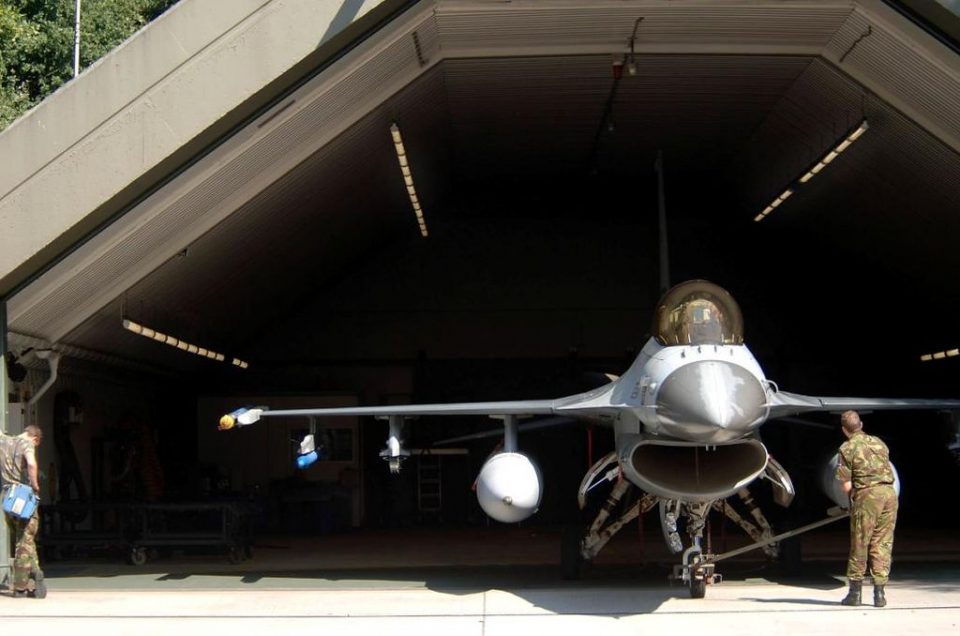An F16 at Volkel airbase. Photo: U.S. Air Force via Wikimedia Commons
Eleven Iraqi civilians are suing the Dutch state for injuries they and their families suffered in an air strike on a car bomb factory in the town of Hawija in 2015.
Lawyer Liesbeth Zegveld said the Dutch military had taken an unacceptable risk in targeting the factory, which was located in a densely populated area. Some 70 people are known to have died after the bombing set off explosives that were stored in the building.
The Dutch government has promised to spend €4 billion in the area to compensate for the loss of homes, electricity and water supplies, but has denied liability for the attack.
Defence minister Ank Bijleveld has told parliament that there was no intelligence before the raid to suggest that it would endanger civilian lives and the government was unaware of the large stock of munitions inside the factory.
But Zegveld said the Dutch reconnaissance of the site had been ‘untimely, inadequate and not independent,’ and breached the government’s obligations under the European convention on human rights (ECHR).
‘The state knew, or ought to have known, that the air strike could have caused large numbers of civilian deaths,’ she told NOS.
The group Zegveld is acting for lost 11 relatives in the bombing, including nine children, while others were left with chronic physical injuries. Among them is Alaa, a postman who fled to Zoetermeer with his wife and child, both of whom were injured by debris from the explosion. Alaa’s son was left blind in one eye.
Another is Abdallah, a 40-year-old repairman who lost his wife and five of his seven children in the bombing, while the family were trying to flee Iraq.
An investigation by NOS and NRC two years ago found that military leaders decided to go ahead with the bombing even though they knew that there was a risk of collateral damage. An American assessment said the attack would bring only a limited or ‘moderately negative’ military advantage.
Zegveld said that on the basis of those assessments, the Dutch ‘red card holder’ – the senior commander with the authority to order the attack – should have stopped the raid going ahead.
Thank you for donating to DutchNews.nl
The DutchNews.nl team would like to thank all the generous readers who have made a donation in recent weeks. Your financial support has helped us to expand our coverage of the coronavirus crisis into the evenings and weekends and make sure you are kept up to date with the latest developments.
DutchNews.nl has been free for 14 years, but without the financial backing of our readers, we would not be able to provide you with fair and accurate news and features about all things Dutch. Your contributions make this possible.


